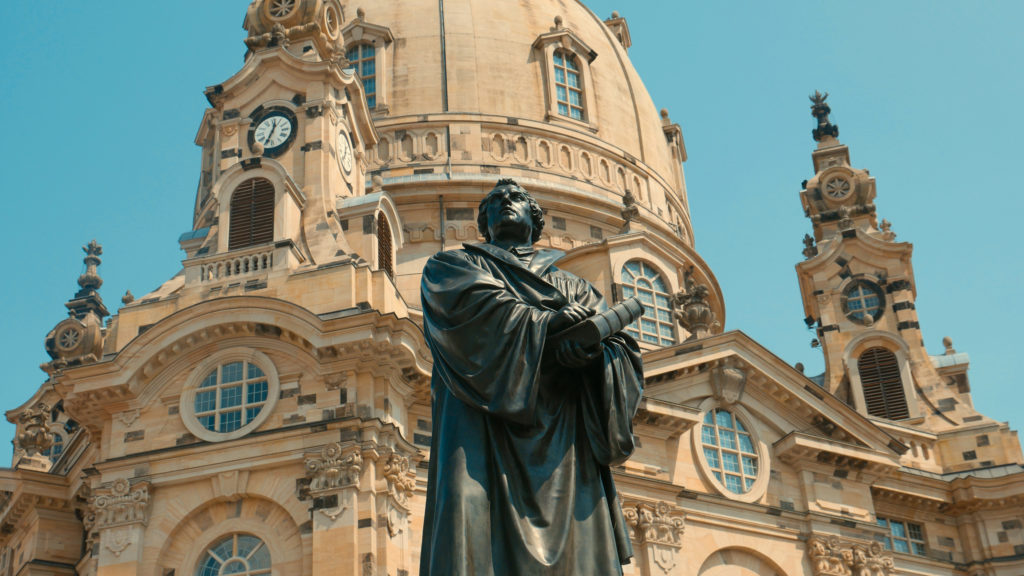“But you must remember, beloved, the predictions of the apostles of our Lord Jesus Christ. They said to you, “In the last time there will be scoffers, following their own ungodly passions.” It is these who cause divisions, worldly people, devoid of the Spirit.” (Jude 17-19)
What makes an excellent pastor or missionary? Is it passionate preaching? Skilled discipleship? A well-organized order of worship? What about proactive and effective evangelism?
While an excellent church leader, planter, or missionary will do all these things, these activities are the fruit, not the root. At his core, the excellent pastor is a reverent man. He is not a mocker, and he understands the danger of spiritual flippancy. When he comes into the presence of God and his assembled people, he does so humbly and in awe of the one whom he worships.
Among his many other indictments of false teachers, Jude exposes them as “scoffers”— a stark contrast to the reverence of Jude, Michael the archangel, and every faithful shepherd of God’s sheep. Echoing 2 Peter 3:3, Jude highlights the dangerous attitude that characterizes these wolves. John Calvin says these scoffers are “inebriated with a profane and impious contempt of God [and] rush headlong into a brutal contempt of the Divine Being, so that no fear nor reverence keeps them any longer within the limits of duty: as no dread of a future judgment exists in their hearts, so no hope of eternal life.”
There is virtually nothing that puts someone in a more precarious spiritual position than to think lightly of God, his holiness, and his offense at our sin. Not only must we approach God with reverence ourselves, but we must also ensure that we only follow the leadership of those who do likewise. We may consider the divine executions of Nadab and Abihu (Leviticus 10:1-2) and Uzzah (2 Samuel 6:5-7) as examples of those who took lightly the things of God and reaped the consequences. How can a spiritual leader bring us closer to God when he only thinks highly of himself?
One may suspect Jude of beating a dead horse—after all, he has spent 15 verses addressing the danger and judgment of false teachers. Is such repetition necessary? In fact, it is. Recall his warm initial address: “you must remember, beloved[.]” Jude is not fixated on abstract doctrine as an intellectual exercise merely but is driven by heartfelt, pastoral concern. We should pray that every pastor who serves the bride of Christ would show such tender care for his sheep. We are forgetful sheep, and we need shepherds who will warn us time and again concerning the danger of straying from the fold.
Jude continues, noting that these teachers “cause divisions.” In his high priestly prayer, Jesus prays for his people that “they may be one even as we are one, I in them and you in me, that they may become perfectly one, so that the world may know that you sent me and loved them even as you loved me” (John 17:22-23).
The unity of the body of Christ magnifies the gospel to the watching world. Spiritual leaders who sow discord among brothers incur the hatred of God (Proverbs 6:19). The church should not exhibit cultic uniformity but biblical unity. A fractious church does not bring glory to the One who died for her. No church’s members will ever enjoy total unanimity of opinions and preferences, but every church should be comprised of members whose chief desire is “to glorify God and enjoy Him forever” (Westminster Shorter Catechism 1).
Reverent, unifying shepherds bring honor to God and blessing to his sheep. May all of our gospel efforts reflect these characteristics.
Prayer:
Heavenly Father,
Thank you for giving your church shepherds who continually and repeatedly point us to the truth. May we have ears to hear only the voice of the Good Shepherd so as not to fall into the snares of the devil. May we revere your name and unify your people.
In your Son’s name, amen.
Prayer Requests:
- Pray for a humble, reverent heart to approach God appropriately.
- Pray for divisive leaders to be prevented from disturbing the peace of God’s people.
- Praise God for his sovereign preservation of his church to the end.






